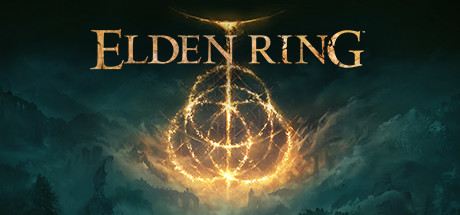Souls-Like, Rogue-Like, Rogue-Lite? What’s the difference?
3 min read
Souls-like, rogue-like, and rogue-lite are distinct but overlapping genres within the action RPG and roguelike family. While they share some common elements, they each have their own unique characteristics. Here’s a breakdown of each genre and how they compare:
Souls-like Games:
Defining Characteristics:
- Challenging Combat: Combat is slow-paced and deliberate, requiring precision and strategy. Players must manage stamina and timing carefully.
- High Difficulty: The games are known for their steep difficulty curve and punishing gameplay.
- Permadeath with a Twist: While the games feature high stakes, death typically results in losing progress or experience, but players can often recover lost resources if they reach their point of death again.
- Exploration and Level Design: Features intricate, interconnected worlds with hidden paths and secrets. Exploration is key, and many areas are designed to be revisited.
- Minimal Hand-Holding: Little direct guidance is given, encouraging players to learn mechanics and lore through experimentation and exploration.
- Atmospheric and Immersive World-Building: Rich, often dark lore is embedded in the game world, and storytelling is primarily environmental.
Examples: Dark Souls series, Bloodborne, Elden Ring.
Rogue-like Games:
Defining Characteristics:
- Procedural Generation: Levels, items, and enemies are randomly generated each playthrough, providing a unique experience every time.
- Permadeath: When players die, they lose all progress and must start over from the beginning, although some games may include meta-progression.
- Turn-Based Combat: Traditional rogue-likes often feature turn-based combat, where each action is performed in turns.
- Resource Management: Players manage limited resources, such as health and inventory space, making strategic decision-making crucial.
- Exploration: Emphasis on exploring procedurally generated dungeons or levels to find items, secrets, and face challenges.
Examples: Rogue (the game that started it all), NetHack, ADOM.
Rogue-lite Games:
Defining Characteristics:
- Procedural Generation: Similar to rogue-likes, rogue-lites feature procedurally generated environments and randomized elements.
- Permadeath with Meta-Progression: While permadeath is present, rogue-lites often include meta-progression systems that allow players to retain certain upgrades or unlockables between runs.
- Real-Time Combat: Rogue-lites often have real-time combat mechanics, unlike traditional rogue-likes which may use turn-based systems.
- More Accessible: Generally, rogue-lites are designed to be more accessible and less punishing than traditional rogue-likes, with a focus on providing a balance between challenge and progression.
Examples: Hades, Dead Cells, Enter the Gungeon.
Similarities and Differences:
Similarities:
- Procedural Generation: Both rogue-like and rogue-lite games use procedural generation to create varied gameplay experiences.
- Permadeath: All three genres often feature some form of permadeath or significant consequences for failure, although the impact and recovery mechanisms vary.
Differences:
- Combat Style:
- Souls-like: Typically features deliberate, tactical combat with stamina management.
- Rogue-like: Traditionally uses turn-based combat, though modern rogue-likes may incorporate real-time elements.
- Rogue-lite: Often features real-time combat with a focus on fast-paced action and reflexes.
- Progression and Meta-Progression:
- Souls-like: Progression is usually tied to the player’s current run, with some permanent upgrades or unlocked abilities gained through effort.
- Rogue-like: Permadeath generally means starting from scratch with no retained progress, although some persistent elements may be present in more modern iterations.
- Rogue-lite: Includes meta-progression systems that allow players to carry over certain upgrades or abilities between runs, providing a sense of continued advancement.
- Difficulty and Accessibility:
- Souls-like: Known for its high difficulty and demanding gameplay, which may appeal to players seeking a challenge.
- Rogue-like: Often features a high difficulty due to permadeath and resource management but can be less accessible due to its complexity.
- Rogue-lite: Generally designed to be more accessible, with a focus on providing an engaging experience while still maintaining challenge and progression.
In summary, while souls-like, rogue-like, and rogue-lite games share some core elements like procedural generation and permadeath, they differ in combat style, progression mechanics, and overall accessibility. Each genre offers a unique gameplay experience tailored to different player preferences.



